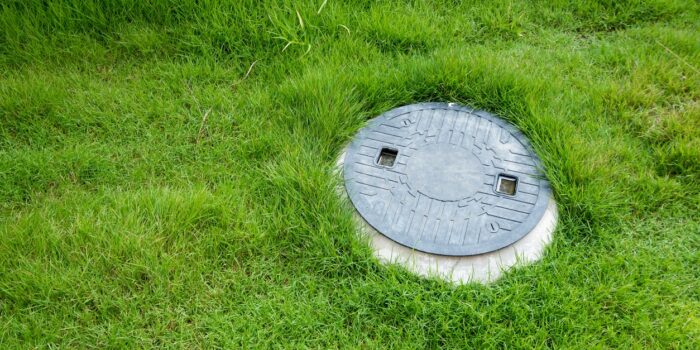As colder temperatures stick around in Northern Alabama, it's natural to think that critical home…

Septic System Advantages – Choosing Septic Over Sewer
Modern domestic and commercial drainage systems come in roughly two options – local sewer systems or individual septic systems.
For many of us, the choice may be made already, since moving into an existing home usually means using its existing drainage. But if you’re building or refurbishing your home, you might be presented with a unique opportunity: Do I link up with the sewer system or install my own?
When choosing between the two systems, which considerations should be made? Is there a clear advantage to one option over the other?
Cost
To most of us, cost will be the primary concern. Sewer system costs are paid monthly and as a utility, while septic systems require an initial investment followed by infrequent pumping fees.
Monthly sewer fees may seem low when ranging from $14 to $135 depending on your region, but when figured annually ($168 to $1,620), the cost of a sewer system can add up. Stretched out over a period of residence (and without adjusting for an increase in rates) you could expect to pay up to $16,200 for sewage over the course of 10 years.
Additionally, new homes opting for sewer access may face hookup fees from $5,000-$20,000.
Installing a septic system, on the other hand, can cost on average between $3,280 and $5,040 – or 20%-30% of the cost of sewer over that same 10 year period.
Maintenance
As just one user on a sewer system, you won’t be solely responsible for major system upgrades or overall maintenance. You will, however, see the cost of maintenance reflected in your rates.
Depending on the age of your sewer system, how many residents rely on it, and the efficiency of your water treatment facility, rate increases can spike during municipal construction projects or natural disasters.
Septic systems, on the other hand, only require pumping every 3-5 years. The cost of pumping can vary, though the national average stands at around $390. Paid across 10 years, the cost of two pumpings comes to $78 annually or $6.50 per month.
Independence
While sewer users share overall maintenance to keep individual costs down, they also share outages, blockages, construction stoppages, and loss of utilities during natural disasters. Consistent sewer access depends on communal accountability and municipal planning.
Septic systems belong to one household and can operate independently of any disruption to local sewer lines. While other families wait for sewer use to be restored, a single family with a septic tank may continue showering, flushing, and using sinks.
Although the septic system user bears full responsibility for maintenance, they may also closely monitor the system’s usage and health–ensuring functionality through the best and worst of times.
Sustainability
Industrial reliance on municipal sewer systems can have an industrial impact on water contamination, chemical additives, and the local ecology.
Aging pipes may contaminate water on its way to or from the treatment plant. At the treatment plant itself, not all water can be retreated or reused. Wastewater is often dumped into other nearby bodies of water, including lakes and oceans.
Septic tanks, meanwhile, make use of naturally occurring bacteria to reduce – if not eliminate – solid waste within your septic tank. What little wastewater your septic tank produces is then reintroduced into the soil which treats and filters it over a wide area into the greater groundwater.
If You Have the Choice, Choose Septic
Admittedly, few of us will have to consider which option we prefer between sewer and septic systems.
But if you crave independence, value sustainability, and consider cost over the long term, the clear choice is the septic choice.
H3: To learn more about the benefits of a septic system over a sewer system, call Economy Septic today!
When building or refurbishing your new home, your drainage options shouldn’t take too much energy to figure out. The team members at Economy Septic Tank Service are experts on the independence and cost benefits of septic systems and can answer every question you might have. To learn about the best option for your home, call us at (256) 435-1086 today!



